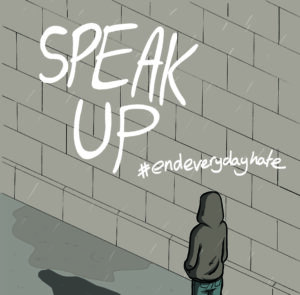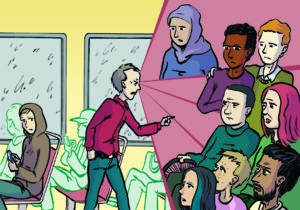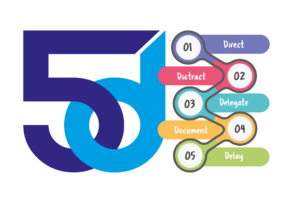Speak Up a young person’s guide to intervening in a hate crime situation.

What is it?
This resource is intended to help young people intervene in situations where someone is the target of hate behaviour. It introduces our approach to being an Active Bystander.
It is aimed at 11-16 year olds but could be used as a training tool for peer educators and youth workers.
On this page you will be able to download the whole Speak Up! booklet and also find activities that can be used alongside it.
We have also developed Facilitator Guidance to be used when delivering this work with young people. Please only give out copies of this resource to young people when used in conjunction with the activities and wider discussions on hate crime, prejudice and discrimination. The guidance includes information on where the resource came from, how it ties in with Youth Work Outcomes and Curriculum for Excellence and has an example session plan you can use.

What is a Bystander?
A bystander is someone who is present in a situation but chooses not to take part. In the videos of hate incidents that have emerged online, you can see other people, often not getting involved in the situation.
Most hate crimes and incidents take place in public space, such as on public transport, streets, shops, and sometimes in schools. It is hard to imagine those places being completely deserted. In fact, bystanders are present in up to 86% of cases of crimes.
We need to take responsibility and shift the dynamic of hate incidents.
An Active Bystander takes steps that can make a positive difference.
This resource will take you through the 5Ds of intervention and show you how to safely be an Active Bystander.
FACT: DID YOU KNOW that only 20% of young people feel confident enough to speak up when someone else is being verbally harassed?
Bystanders can play a crucial role in preventing hate crime and they can do so without putting themselves at risk.
SPEAK UP is intended to change passive bystanders into active bystanders.

Activities
The following activities can be used by peer educators, youth workers, teachers or anyone who wants to talk to young people about being active bystanders. They address how a young person can safely intervene by helping them to identify whether something could be a hate crime, considering the risks of a situation and looking at their own prejudices and stereotypes.
Finally, be part of the conversation online and tell us what you think of Speak Up using #EndEverydayHate.
Accessible versions:
In order to provide better access to the Speak Up resource we have a Word version available to download and adapt to suit e-readers and other access requirements. Speak Up – accessible
We have also worked with Deaf Action to create this BSL version of the booklet:

